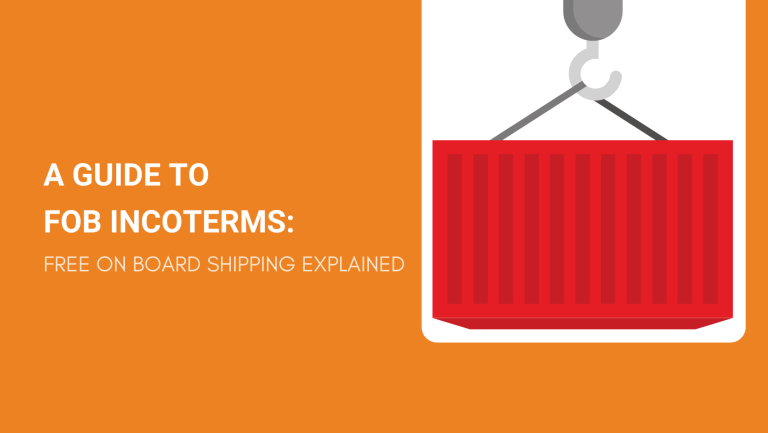In international trade, FOB stands for Free On Board, and it’s one of the most commonly used Incoterms for buyers that ship bulk cargo by sea.
FOB Incoterms establish the shipping terms and liability of both the buyer and the seller. In this case, the transfer of liability occurs at the point when the seller loads the goods onboard.
Did you know that FOB is one of the original Incoterms dating back to 1936? But, what makes FOB so wanted by buyers?
Let’s dive right in and see!
What Is FOB Incoterms?
FOB is a logistics abbreviation that stands for “Free On Board” and it’s used for sea and inland waterway transport of non-containerized bulk cargo.
FOB Incoterms is one of 11 types of International Commercial Terms established by the International Chamber of Commerce (ICC).
Under FOB terms, the seller is responsible for the goods only until they are loaded and board the vessel. At that point, the liability transfers to the buyer.
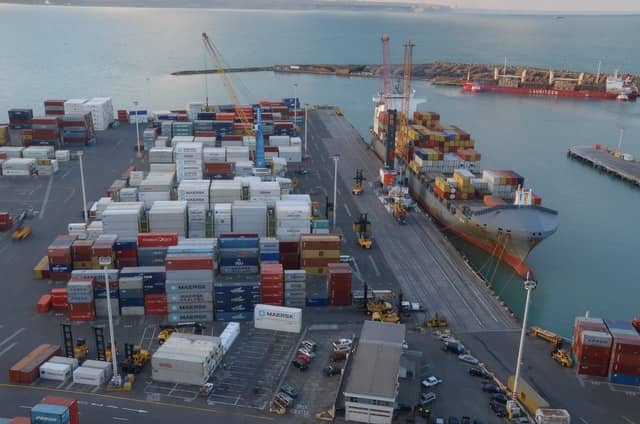
FOB Risk and Costs
The risk and costs under FOB terms transfer from the seller to the buyer at the same point throughout the delivery process – once the seller delivers the cargo to the shipping port and loads the goods in the vehicle.
From the moment the goods are loaded on board, liability goes to the buyer.
Seller Is Responsible For
FOB Incoterms oblige the seller to take responsibility for:
- Delivering the goods, invoice, and other supporting documentation
- Export formalities (packaging, licenses, expenses)
- Delivery of the goods to the port of shipment
- Loading the goods on the vehicle organized by the buyer
Buyer Is Responsible For
Under FOB shipping terms, the buyer is responsible for:
- Paying for the goods as agreed in their contract
- Paying the sea freight from the port of shipment to the destination port
- Insurance for the sea transport (not mandatory with the FOB trade term)
- Unloading of the bulk cargo at arrival
- Import duties and taxes
- Transport of the goods from the FOB destination port to the storage facility or another final destination
- Unloading at the final destination
Using Free On Board (FOB) Incoterms
Free On Board Incoterms is used for bulk and non-containerized orders that need to be transported by sea or inland waterway transport.
FOB is suitable only for sea freight. For other modes of transport, try FCA Incoterms.
FOB is a popular choice for buyers who wish to be more in control of their stock delivery and want to choose their own freight provider. With FOB, buyers can choose more cost-effective options and save money.

When it comes to the use of Incoterms in general, they’ve received complaints throughout the years. According to recent research, the latest set of Incoterms (Incoterms 2020) fails to consider different trade types and it misses a holistic approach.
In any case, choosing the right Incoterms for your cargo and needs is crucial if you’re buying in bulk or sourcing products in China.
FOB Advantages
Here are some of the benefits of using FOB Incoterms for sellers and buyers:
For Sellers
- No need to organize delivery to the buyer’s port
- Responsibility only until the cargo is on your territory
- No worrying about import costs or procedures
For Buyers
- More control over the shipping methods and logistics
- More control over the transport costs
- You can rely on one freight service and decrease miscommunication
FOB Disadvantages
Learn also the cons of FOB Incoterms so that you don’t make a mistake in choosing them:
For Sellers
- Responsible for risk of loss or damage until loading
- Taking care of transport to the shipping port and loading
For Buyers
- Taking care of import procedures and costs
- Paying for the sea transport
North American FOB
In US sales agreements, they use slightly modified FOB terms. They make a distinction between two different types of FOB:
FOB Shipping Point (FOB Origin)
Under FOB Shipping Point terms, the sale is complete at the seller’s shipping port, so from that point on, the buyer takes on all the liability and cost.
FOB Destination
With FOB Destination, the sale is considered to be completed at the buyer’s destination port. This makes the seller responsible for covering the cost and liability of the transport.
Here’s a small table visually representing the US FOB types with the corresponding ICC Incoterms:
| US FOB | ICC Incoterms |
| FOB shipping point / FOB shipping point, freight collect | FCA (Free Carrier) shipping point |
| FOB shipping point, freight prepaid | CPT (Carriage Paid To) destination |
| FOB destination / FOB destination, freight prepaid | DAP (Delivered At Place) destination |
These distinctions are important to know, especially if you’re shipping domestically within the US.

FAQs about FOB Incoterms
Let’s make sure you don’t miss out on any important information regarding FOB Incoterms in shipping.
What Is the Meaning of FOB Incoterms?
In shipping, FOB stands for Free On Board. This is one of 11 Incoterms established by the ICC (International Chamber of Commerce).
Under FOB terms, the seller’s cost and liability transfer to the buyer after loading the stock on board. From that moment on, the buyer takes over the freight cost, possible insurance, import, and unloading.
What Are FOB Shipping Terms?
Generally speaking, these are the items outlined in FOB terms:
- The port of shipment (port of loading)
- The destination country and port
- The obligations of the seller to take care of transport to the shipping port, loading the cargo, and export procedures and expenses
- The obligations of the buyer to overtake the risks and costs for freight, insurance (optional), import, unloading, and transport to the final destination
Who Pays the Freight on FOB?
The freight in FOB Incoterms is typically paid by the buyer.
The seller covers everything up until loading and export. After that, the buyer takes over the liability and costs.
As the name itself suggests – Free On Board – it’s free to the buyer up until loading of the product onboard the vessel.
However, in US FOB, there’s a slight difference:
- FOB origin, freight collect – the buyer pays freight charges
- FOB origin, freight prepaid – the seller pays freight charges (but the risk of transport stays with the buyer)
Does FOB Mean Free Freight?
No. FOB stands for Free On Board. The freight in this case is a cost covered by the buyer, not the seller.
Does FOB Price Include Duty?
FOB price includes export duty and taxes but not import duty. The freight cost and import duty expenses are covered by the buyer.
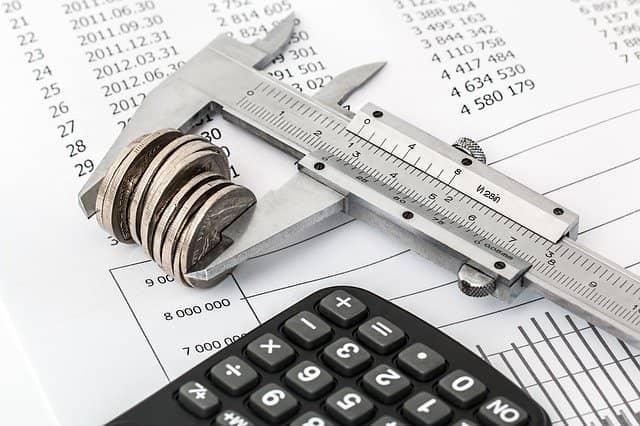
Does FOB Include Customs Clearance?
With FOB, the seller covers any customs clearance costs and procedures related to exporting the cargo. However, the buyer is responsible for import in their own country.
Does FOB Include Packaging?
Yes. The seller has to prepare the cargo for export and load it on the vessel. That means packing the products for shipping.
Is Insurance Required for FOB Shipments?
Under FOB Incoterms, insurance isn’t a required item. However, if you’re the buyer, we always recommend insuring your cargo in case of any risks like loss or damage.
What Costs Are Included in FOB?
FOB includes everything up to loading the stock on board the vehicle at the port of shipment.
For instance, FOB covers ex-factory costs, packing charges, domestic transportation, export, and loading charges.
How Is FOB Value Calculated?
Here is the main formula:
FOB Value = Ex-Factory Price + Other Costs
By *other costs*, we mean things like domestic transport, storage, port charges, export, and loading charges.
And the supporting formulas to complete it:
Ex-Factory Price = Production Cost + Profit
Production Cost = Cost of Raw Materials + Labour Cost + Overhead Cost
What Is the Difference between CIF and FOB?
CIF stands for Cost, Insurance, and Freight, while FOB stands for Free On Board. Both are Incoterms exclusively for sea freight and inland waterway transport.
The main differences between the two are:
- In CIF, the seller covers the freight and insurance
- In FOB, the buyer covers the freight
- Insurance in FOB is optional
- FOB is more budget-friendly since the buyer can take care of the shipping logistics.
What Is the Difference between EXW and FOB?
Here are the main differences between EXW or Ex Works Incoterms and FOB:
- Under EXW terms, the seller only needs to make the cargo available for pickup at their place of business or an agreed location.
- With EXW, the seller doesn’t have to transport the cargo to the shipping port or load it onboard a vessel.
- Contrary to FOB, the seller isn’t responsible for export procedures and costs.
To sum up – with FOB, the seller’s responsibility stops after loading the cargo on the vessel, and with EXW, it stops after the buyer picks up the cargo from the agreed location (typically the seller’s warehouse).
What Is the Difference between FCA and FOB?
FCA stands for Free Carrier while FOB means Free On Board.
The first and main difference between FOB and FCA is that the former is used only for sea and inland waterway transport, while the latter is for all types of transport.
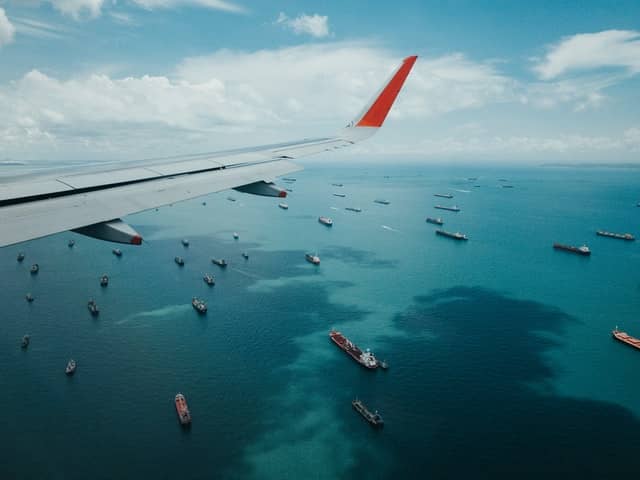
But, let’s see which one is more favorable for buyers and which one for sellers.
From the seller’s viewpoint, they would almost always choose FCA Incoterms. Why? Because the liability and costs in FCA often end after the buyer picks up the cargo from a designated location or the seller loads it on a carrier sent by the buyer.
With FOB, on the other hand, the seller is responsible for loading the cargo on the main vessel and dealing with the export procedure and expenses.
From the buyer’s viewpoint, logically, they would choose FOB. That’s because the risk and liability with FOB stay longer with the seller.
What Is the Difference between FAS and FOB?
FAS stands for Free Alongside Ship.
The main difference between FOB and FAS is that with FAS, the delivery is considered completed once the seller’s vessel arrives at the destination port alongside the buyer’s vessel.
Although the seller is responsible for delivering the cargo to the buyer’s destination port, the buyer covers the sea freight cost, insurance, export, and unloading.
Can you use FOB Incoterms for Domestic Shipments?
Yes. You can use FOB Incoterms for both international and domestic shipping.
Does FOB Apply to Air Freight?
No. FOB Incoterms apply to sea freight only. If you need similar shipping agreements suitable for other transport methods, look into FCA Incoterms.

Why Is FOB Good for Importers?
Buyers choose FOB for sea freight due to these reasons:
- More control over the shipping logistics
- Control over choosing freight services
- Cost-effective transport
- Risk stays with the seller until the cargo is loaded onto the main vessel
What Is FOB Shipping Point?
In North America, FOB shipping point or FOB origin signifies that the sale is considered finished, and the transfer occurs at the seller’s shipping dock once the stock is onboard the vehicle.
Typically, in this type of shipping terms, the buyer is responsible for the freight cost.
What Is FOB Destination?
In the US, FOB destination means that the sale is finished and the transfer of stock occurs at the buyer’s shipping dock, after unloading the vehicle.
With FOB destination terms, usually, the seller pays for the freight and carries the liability during transport.
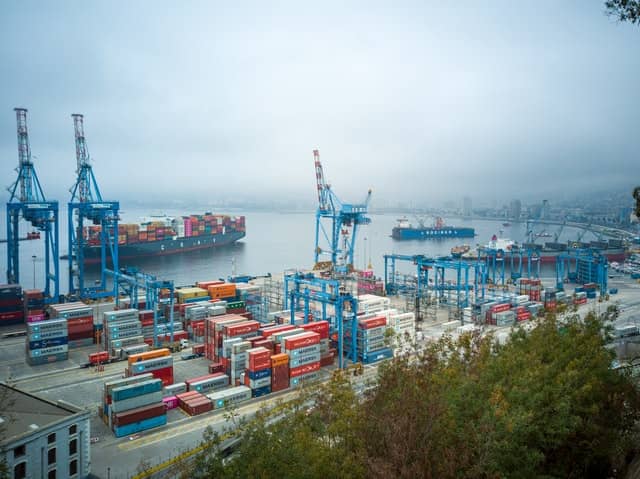
What Are the F Category Incoterms?
The F-group of Incoterms includes those that place responsibility on the seller for local transportation and delivering the cargo to the buyer’s vehicle or carrier.
There are three F-group Incoterms:
- FOB (Free On Board)
- FAS (Free Alongside Ship)
- FCA (Free Carrier)
FOB and FAS are only for sea and inland waterway transport, while FCA can be used for all types of transport.
To Wrap Up
In summary, we want to take a step back and point out the importance of learning the FOB meaning in shipping, especially if you’re buying wholesale from China or similar countries.
Hopefully, our guide to FOB Incoterms gave you value and taught you to decide if FOB is right for your needs.
If you want to start sourcing in bulk but still haven’t found your products, we’re at your disposal. Use our free sourcing service and see if you like the product with zero upfront costs and obligations.
